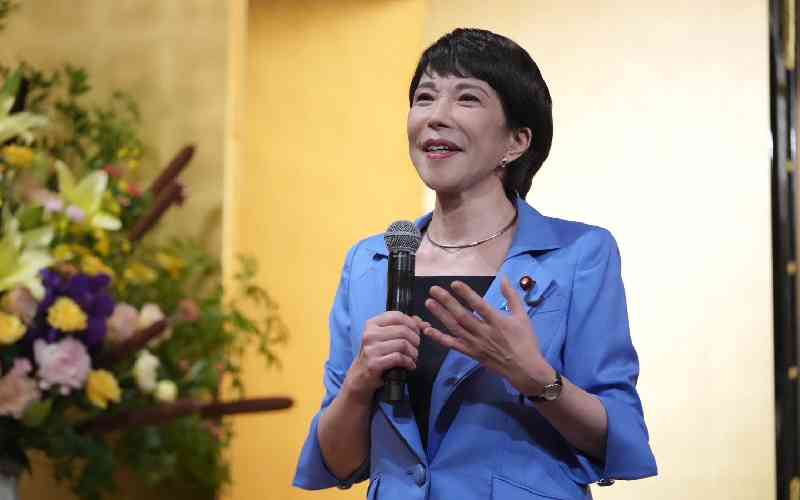
The real estate world has long been considered a man’s domain but with better access to career and business opportunities, more women are acquiring wealth and venturing into owning and investing in property.
At university, while her classmates savoured the excess freedom of campus life, Damaris was making money by selling second-hand clothes.
“I would go to second-hand clothes bazaar and purchase items I would be proud to wear myself,” she says. “I would wash them clean then iron them almost to perfection.”
Her clients were friends and classmates in the social circles of campus.
Ever since, Damaris has had a nose for where to make money. She doesn’t procrastinate when an opportunity presents itself.
“If you want to make money, you must develop a sixth sense to detect where it is and go for it,” she says.
By the time of her graduation, Damaris had founded two businesses – a stationery business and a fully-fledged boutique in addition to a high-paying job.
Pooling resources
Six years ago, Damaris (and three friends) ventured into real estate.
“We had started a chama and had saved some good amount of money. We asked ourselves how we could invest it for better returns. We agreed on real estate,” she says.
The group’s first exploits involved buying and selling of land and properties in Kenya’s major towns and cities.
“We would buy houses located in prime areas. Fix anything that was broken. Improve its aesthetics. Then find a buyer and sell it off then make our profit,” she says.
They also bought parcels of land, divided it into smaller units, and then sold them off.
Within three years, the girls had made 100 per cent returns. But it wasn’t that easy. Like any other business, they had to put in the effort.
“Because we were four, we were able to assign ourselves different tasks. We worked as a team,” she says.
Today the four jointly own property in Eldoret, Nakuru, Malindi and Mombasa. Business, Damaris says, slowed down in 2017 [because of the general election] and is yet to go back to normal.
“We jointly own the properties. We are not actively involved in real estate now as business is slow but eventually we will sell and share proceeds,” she says.

Business like any other
According to Emmah Miloyo, the former president of Architectural Association of Kenya, real estate is a sector that should not be looked at as the holy grail of making money.
“You should look at it like any other business,” Emmah, who is also the author of ‘Building in Kenya: A real Estate Developer’s toolkit’ says.
Before cutting your teeth into real estate, Emmah advises that you should conduct feasibility studies. “Make sure that the environment is right and that you have what it takes to be committed,” she says.
Whether one is buying to sell, rent or for personal use Emmah says real estate is one sector that almost certainly guarantees appreciation in property value.
However, there are specific factors to consider when looking at real estate for investment, she says. Timing, location and type of property all come into play.
Time because demand and supply are variants pegged on time. Location, relative to major amenities and government services, determine how fast the property appreciates in value. As for type of property, the question would be: what is currently in high demand?
“You have to understand your target market and their needs,” she says.
When buying property to move into with family Emmah notes that the factors at play change – albeit not so much.
“If it is a house you would love to make a home you would probably worry about its size and the amenities such as hospitals, schools and security,” she says.
Challenges are there...
Njanja Muguongo is another person who chose real estate. She is both a developer and homeowner.
Njanja is the proprietor of KamHomes Investments Ltd. She says: “We went into business in 2008. It was an exciting challenge: creating new homes from scratch to something tangible and not to mention the returns.”
Njanja says her experience operating in real estate has been good. “At the start, the demand was high and the uptake was better than today.”
Currently though, business has been tough. The current economic situation has negatively affected the industry – forcing many to change strategy.
“Despite the market not doing too well, I would still advise women to venture into real estate. It is challenging but can be accomplished.”
The biggest challenges in real estate, she says, are a weakening economy and high interest rates, “which unfortunately we are currently facing.”
As a homeowner, Njanja is proud of the decision to purchase a home for her family. Owning a home not only guarantees her a roof over the head but is also an investment. Houses, she says, always appreciate in value. This is what informed the decision to purchase the home.
Not for everyone
According to Emmah buying a home or renting a home is a choice that one makes after considering all factors around them.
“This is not a one-size-fits-all decision,” she says. “For some it may be a good decision but not necessarily for everyone.”
According to Emmah, it is always good to ask the question: ‘Why am I buying a home?’
“Is it because you want the security of a roof over your head? Or do you just want to buy for sentimental value?”
Because while it is true that houses appreciate in value there may be other business ideas that could offer better returns than putting your money in a house.
And when you do decide to buy the house you should consider the costs involved. For instance, are you buying cash or through mortgage?
What about the school of thought that you can pay rent as part of mortgage? So that eventually you will own the house?
“Mortgage may be too expensive in the long run. By the time you are done paying the mortgage the house may not be worth the same amount you will have paid. Why not invest that money somewhere else where you would possibly make more,” Emmah points out.
In the end, she says, owning property is good. Buying and selling homes is even better. But one has to be sure that they are passionate with whichever they chose.
Is technology going to save the world. . . or kill it? The Standard Group Plc is a multi-media organization with investments in media
platforms spanning newspaper print
operations, television, radio broadcasting, digital and online services. The
Standard Group is recognized as a
leading multi-media house in Kenya with a key influence in matters of national
and international interest.
The Standard Group Plc is a multi-media organization with investments in media
platforms spanning newspaper print
operations, television, radio broadcasting, digital and online services. The
Standard Group is recognized as a
leading multi-media house in Kenya with a key influence in matters of national
and international interest.










